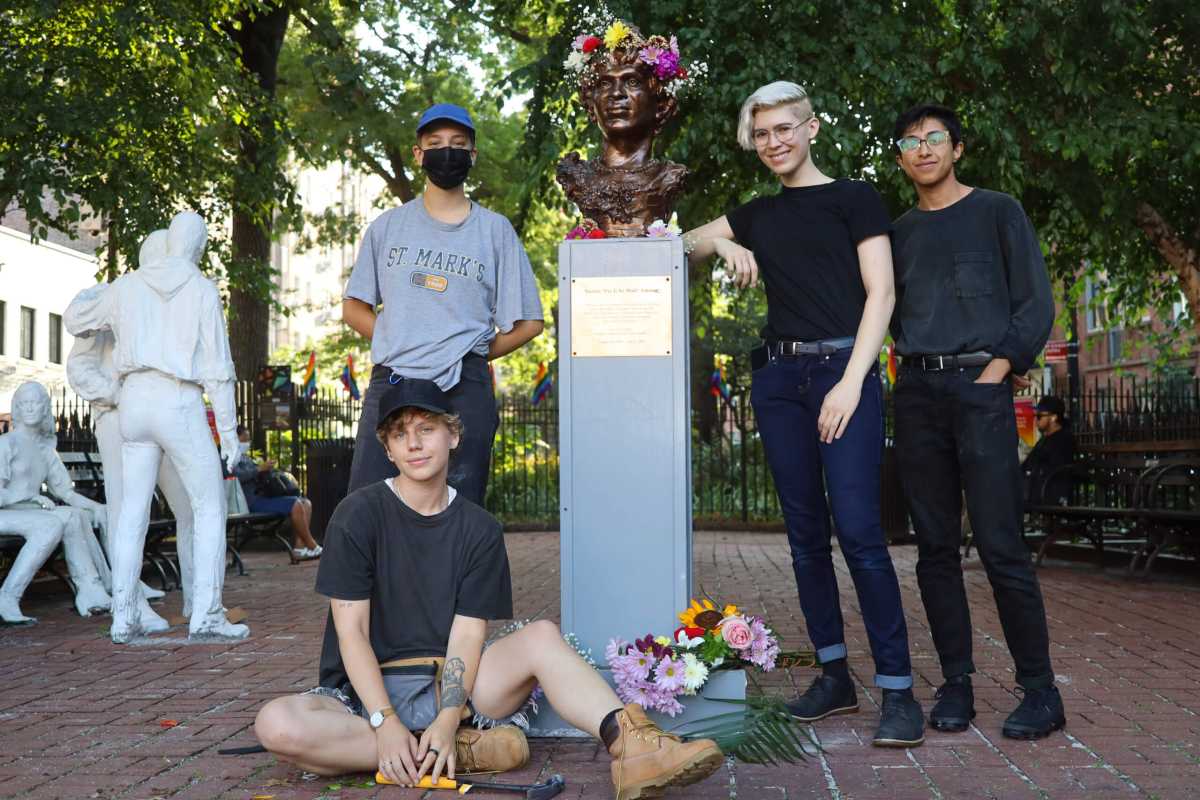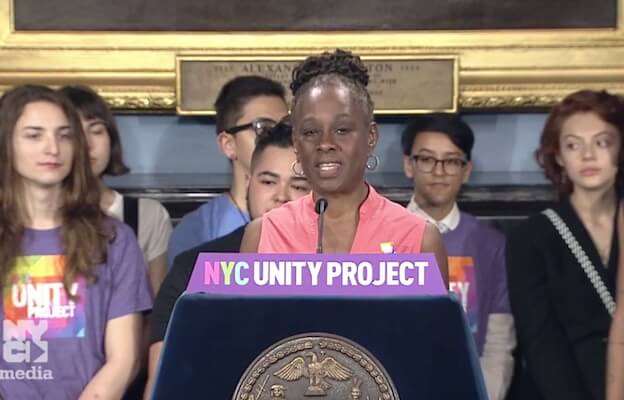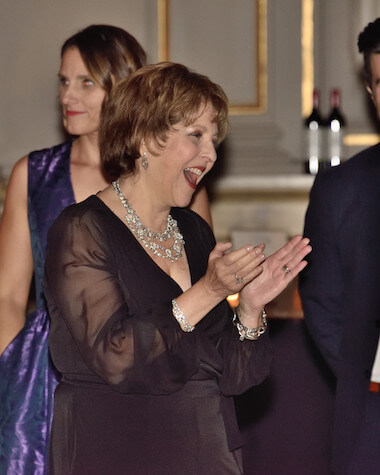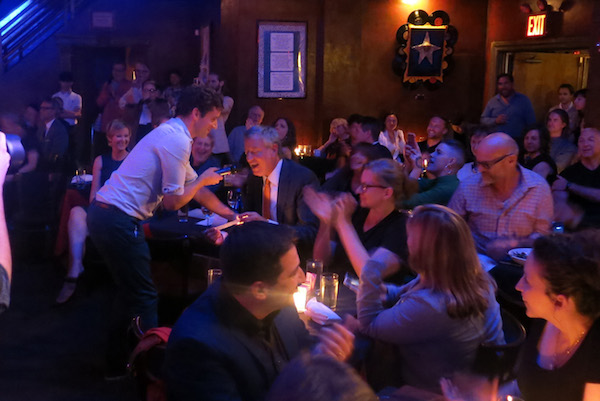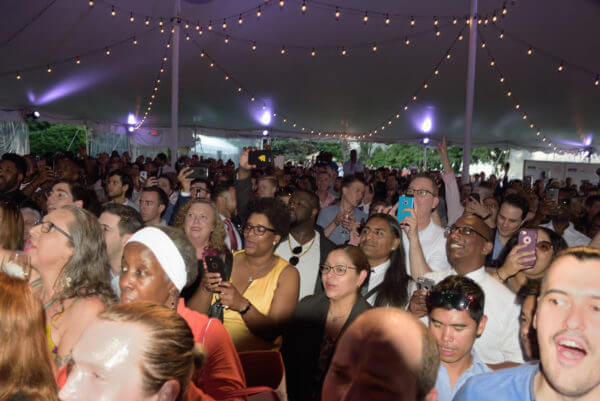The sculpture, which was installed on the activist’s 76th birthday, was not approved by government officials. In 2019, First Lady Chirlane McCray and the city turned to the She Built NYC program — aimed at erecting statues of women in history — to announce plans to pay tribute to Johnson and Sylvia Rivera with a monument at Ruth Wittenberg Triangle at 421 Sixth Avenue at Christopher Street and Greenwich Avenue. However, that initiative and other plans for monuments were placed on the backburner during the COVID era, according to the city.
The activists behind the new sculpture include Eli Erlick, a transgender advocate and cofounder of Trans Students Educational Resources, and sculptor Jesse Pallotta, a sex worker who said he used $6,000 of his own funding to create the sculpture. The activists accused the city of dragging their feet to erect sculptures honoring LGBTQ women across the city.
“We decided to build the sculpture because we do not believe the city will fulfill its promise to erect the statues of the women it claims it will,” Erlick said in a written statement to Gay City News. “If they do, we’re certain it won’t be in a timely manner. They did not construct a single sculpture from their $10 million dollar 2018 She Built NYC campaign. Nor did they even choose artists for most of their proposed statues.”
She added, “This goes much further than COVID delays to fundamental disorganization surrounding and apathy toward remembering historical women. As trans people, we knew we had to take matters into our own hands if we wanted to remember such a profoundly impactful figure like Marsha.”
It is not clear whether the sculpture — which sits in the middle of the park — will remain in place for the foreseeable future. The National Parks Service could not immediately be reached for comment on August 27. Activists said they reached out to the city to discuss issuing a temporary permit.
In a statement, Mitch Schwartz, a spokesperson for the mayor’s office, said the city is aware of the new sculpture but has nothing to do with it.
“This isn’t a city statue, although the city has pledged to build them,” Schwartz said in a written statement. “The city-commissioned statues are currently on hold; COVID-19 has delayed monuments and public art projects across the board, as you’d probably imagine. We’re still committed to seeing these through for both Johnson and Rivera. But this one appears to have been put up by some activists, and I don’t really have any more details on it.”
Pallotta said he sought to honor the contributions of Black and Brown people in the fight for LGBTQ rights.
“The initial spark to create a monument of Marsha was due to the city’s cancellation of the sculpture and the historical pushback of the George Segal ‘Gay Liberation Monument,'” Pallotta said. “For many of LGBT+ folks, they are not represented in the cis, normative gay couples that Segal’s statue depicts. Marsha is a representation of all of the outcasts: trans people, black and brown queers, sex workers, drag queens, houseless folks, those who have been impacted by the incarceration system and many more who have been historically left out of the modern LGBT+ movement.”
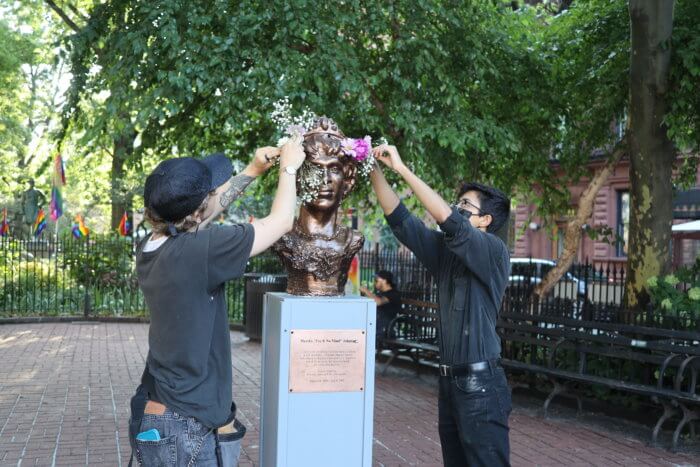
TS Candii, a Black transgender woman and founder of Black Trans Nation, said she believes more grassroots Black trans activists should have been consulted or involved in the project’s debut.
Activists who installed the sculpture stressed they do so as individuals and not as part of any organizations.
“Although we hope the statue will inspire viewers to support groups like the Marsha P Johnson Institute, we did not want to put any organizations or individuals at risk by partaking in a risky activity,” Erlick said in a statement.
To sign up for the Gay City News email newsletter, visit gaycitynews.com/newsletter.

